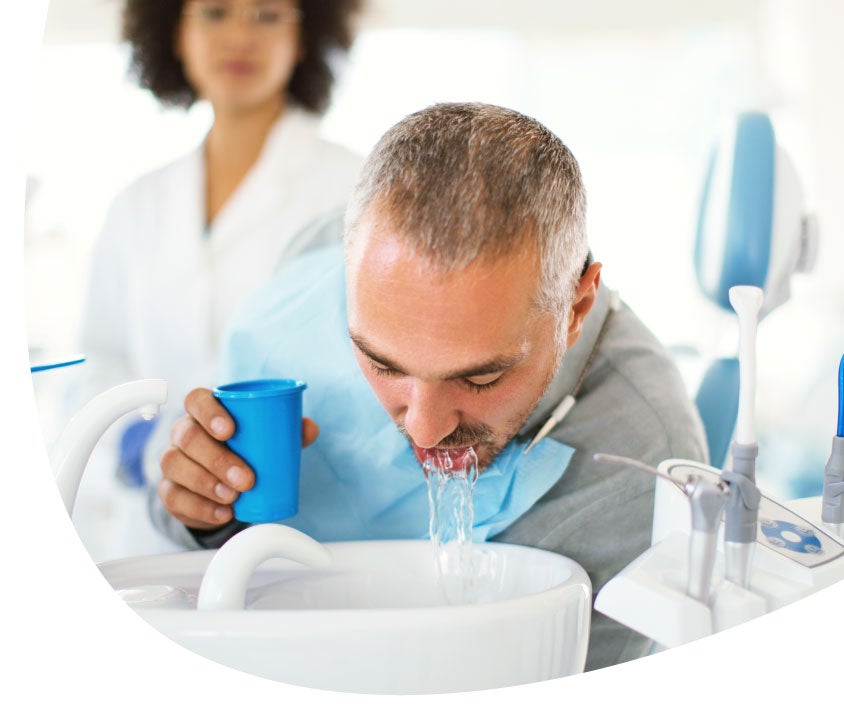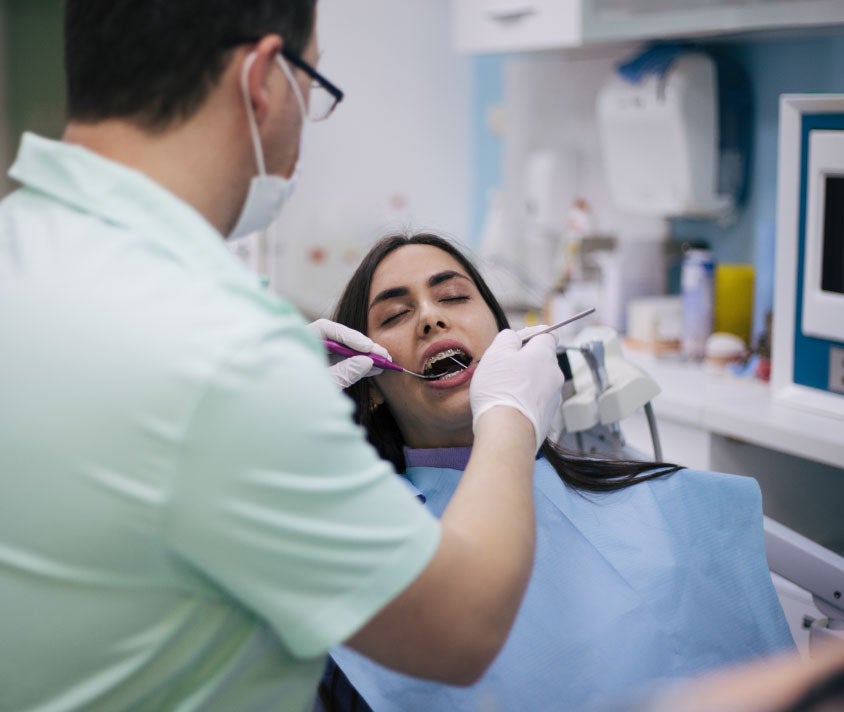This article will take you 5 minutes to read
Regular mouthwashing is part of thorough oral hygiene, as is brushing your teeth with a toothbrush and dental floss and cleaning your tongue with a special tongue scraper. Mouthwashes should certainly be an integral part of our daily oral care routine. However, there is a wide range of different mouthwashes with different active ingredients and the selection is therefore not always easy.
What actually is mouthwash?
Contrary to the common term, from a dental point of view, mouthwash is of course something other than water. There are many different mixtures, including cosmetic products in concentrated form, gum care solutions and medicinal mouthwashes with preventive or curative active ingredients. Some cosmetic mouthwashes have an alcohol content of up to 30 percent. This must be considered when choosing, as mouthwashes containing alcohol are not suitable for everyone. We recommend using a mouthwash without alcohol, especially for long-term use. Since mouthwash falls under the “Regulation for Cosmetic Products”, it does not necessarily have to have a proven effect like medical mouthwash. But the ingredients in mouthwashes that care for the gums also have an effect. Fluoride remineralizes the teeth and any exposed root surfaces. In this way, the teeth are protected from tooth decay. Some herbs can promote blood circulation and thus ensure the improved supply of oxygen-rich blood. This strengthens the gums and makes them more resistant to bacteria. Other ingredients such as allantoin or vitamin A have a calming effect on irritation and the combination of amine fluoride and stannous fluoride can kill germs.
A regular mouthwash can therefore certainly be sufficient for normal tooth and mouth cleaning. It has a disinfecting effect and, in conjunction with regular and thorough tooth brushing, has been proven to remove plaque, i.e. dangerous plaque. This contributes significantly to the prevention of gingivitis, which can develop into an infectious disease of the periodontium: periodontitis. But even if you already suffer from the disease, the right mouthwash is an essential part of treatment.
Medicated Mouthwash
In the case of an advanced gum problems, it is best to use mouthwashes with chlorhexidine, which should not contain alcohol. The strong gum protection effect is particularly important in helping swollen gums. However, keep in mind that a chlorhexidine mouthwash is not a substitute for normal oral and dental care routine. A therapeutic mouthwash containing 0.12% chlorhexidine should only be used for about two weeks.
It should also be noted that the ingredient chlorhexidine discolours teeth and tongue brownish during the period of use. This superficial pigment coating can be removed by the dentist after the therapy using professional tooth cleaning agents. For an optical "self-help" you can use toothpastes with an abrasive effect that "rub off" the plaque. However, these toothpastes should be used sparingly and no more than once a week. Chlorhexidine can also affect the sense of taste over a long period of time, but this side effect also disappears after the product is discontinued.
Protection
The best way to care for your mouth is, of course, to brush your teeth twice a day. This should be particularly thorough in the case of periodontitis in order to really effectively remove harmful plaque, which is the main reason for advanced gum problems. The toothbrush should not be too harsh to avoid additional lesions and we recommend using a toothpaste formulated for advanced gum problems to counteract not only the symptoms but also the causes of the swellness. Use to remove plaque from gaps and cavities before it can develop into tartar. Tongue cleaning should also be an integral part of daily oral hygiene, as up to 80% of the dental plaque in the mouth are on the tongue.




